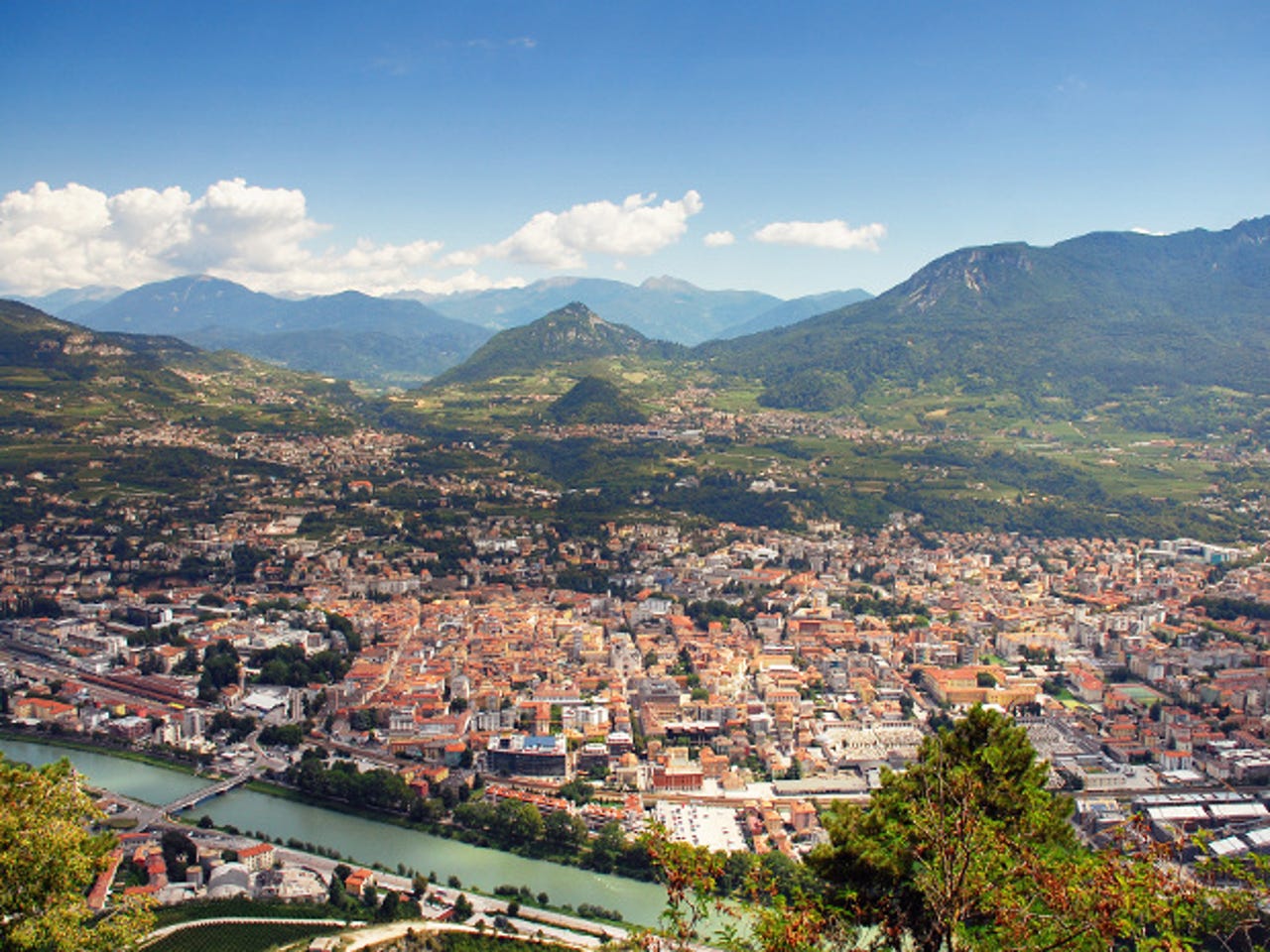The best kept secret in startup scenes is hidden in the Italian mountains


Nestled in the Dolomites, the independent region of Trentino-Alto Adige is one of Italy's most sparsely-populated areas, and also one of its wealthiest. Its Italian- and German-speaking, culturally-diverse population enjoys a high standard of living, modern infrastructure — not to mention some beautiful views.
The region owes its privileges to a statute that allows the two provinces that make up the region (Trentino and Alto Adige) to keep their legislative and executive powers independent from the central government in Rome. Now, careful planning and enlightened local government is turning Trentino-Alto Adige into what is beginning to be known as the Italian Tech Valley.
Alberto Pacher, current president of Trentino-Alto Adige, recently declared the region's real strength was innovation, and that its link between research institutions, businesses and society was pivotal.
Trento, capital city of the Trentino province, is the Italian node of the EIT (the European Institute for Innovation and Technology). Alongside the EIT's hubs in Berlin, Paris, Stockholm, Helsinki and Eindhoven, the Trento node is charged with fostering innovation and research.
Trento's particular focus is on technology, and the node plays home to the EIT's ICT Labs, which bring together academic institutions, companies such as Italy's biggest telco Telecom Italia and systems integrator Engineering; establishes connections with local ICT organisations such as Trento Rise; and creates opportunities for startups and innovative businesses to set up shop in the area.
Techie government
The region offers incentives for investing in research and development (worth between 20 percent and 80 percent of the capital invested) and there have been a number of large public sector investments in infrastructure. Trentino Network, for instance, aims to promote telecoms development in the Trento province and has since laid 800km of fibre and set up 700 public wi-fi hotspots to provide broadband access across the region, including areas not covered by traditional xDSL services.
The local government is also known for its tech credentials, having used an e-voting infrastructure for local elections (a first in Italy), for example, and implementing a long distance e-learning project, called Progetto ESPERTO, aimed at regional employees. Nowadays Trentino's systems are still seen as a model of excellence, and a distant goal for the rest of Italy, which is far behind in the race to modernise.
Thanks to the joint efforts of a number of organisations — including the Regional and Provincial Offices, the Fondazione Bruno Kessler, business associations ConfCommercio Trentino and ConfIndustria Trento and other local bodies — this region once devoted solely to tourism and agriculture now counts around a thousand companies in the ICT and electronics sector on its territory, with a yearly turnover of €530m (£448m).
Trentino is also trying to attract more young entrepreneurs to the area through a series of initiatives aim at attracting talents from all over Europe converge to the region. Less than a month after the publication of the Digitalia decree (a set of strategies to encourage digital development in the country, published late last year), the province of Trento set up an ambitious program for startups.
Italy is the nation of endless bureaucracy, booby-trap legislation and constant delays, and Trentino took full advantage of its independent status to create the a hub where ideas and funds could meet, without being hindered by incoherent and outdated regulations.
Tech Peaks, an accelerator that's part of the Trento Rise network and supported by Trentino Sviluppo (a regional agency set up by the Trento province "to foster the sustainable development of the Trentino ecosystem") connects major ICT research, education and business organisations with young individuals or teams with skills and passion for IT. The accelerator just announced its latest intake, accepting 72 young startups into its program.
Trento Rise also sponsorsed InnovAction Lab, a free course to learn how to develop an idea into a viable business plan and reach potential investors.
Startup support
Also sponsored by Trentino Sviluppo, the D2T Start Cup is a competition and is aimed at young business-minded individuals between the ages of 16 and 36. The winner receives €50,000 (£42,280), startup support services and the opportunity to take part in the National Innovation Prize. The second place company will get a €15,000 prize, startup support and entry into the National Innovation Prize.
StartUp Trentino, meanwhile, is a political movement but first and foremost an informal meeting point for local business and individuals with ideas to share. And for alumni of the University of Trento with startup and spinoff companies in mind there's more potential support available, with financing on offer from the university.
Today, in the slow and crisis-ridden Italian business landscape, Trentino is a bustling hive of activity, a generator of ideas and an example of what the country has to offer. In a continent of urban startup hubs, Trentino is showing it's got the potential to do things differently.